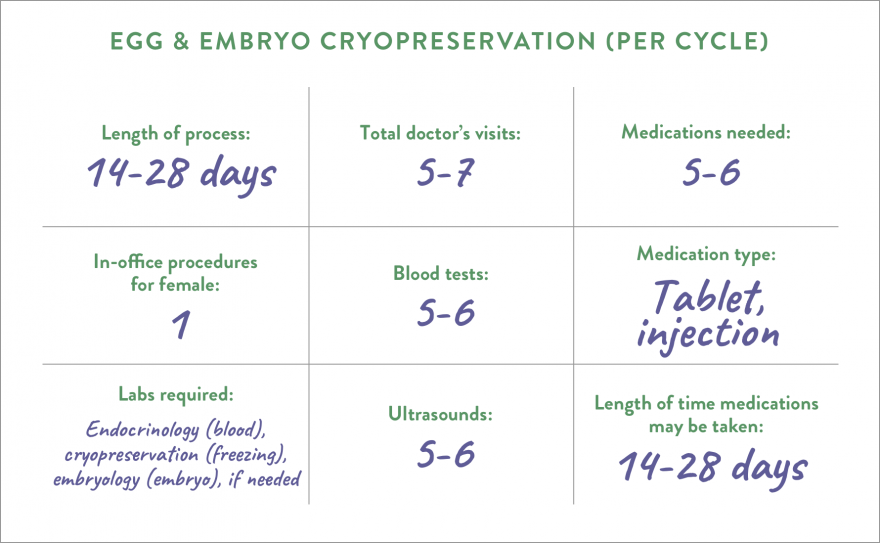To freeze eggs or embryos—called cryopreservation—you’ll go through a process called controlled ovarian stimulation (COS), during which your body will be stimulated to produce multiple eggs. After the eggs are retrieved, they will either be frozen right away, or fertilized with sperm to create embryos before being frozen, in a process called in-vitro fertilization (IVF).
When you’re ready to become pregnant in the future, your eggs or embryos will be thawed. If you’ve frozen eggs, they will be fertilized in a lab with sperm from your male partner or donor before being transferred into your uterus. If you’ve frozen embryos, they will be transferred right away.






